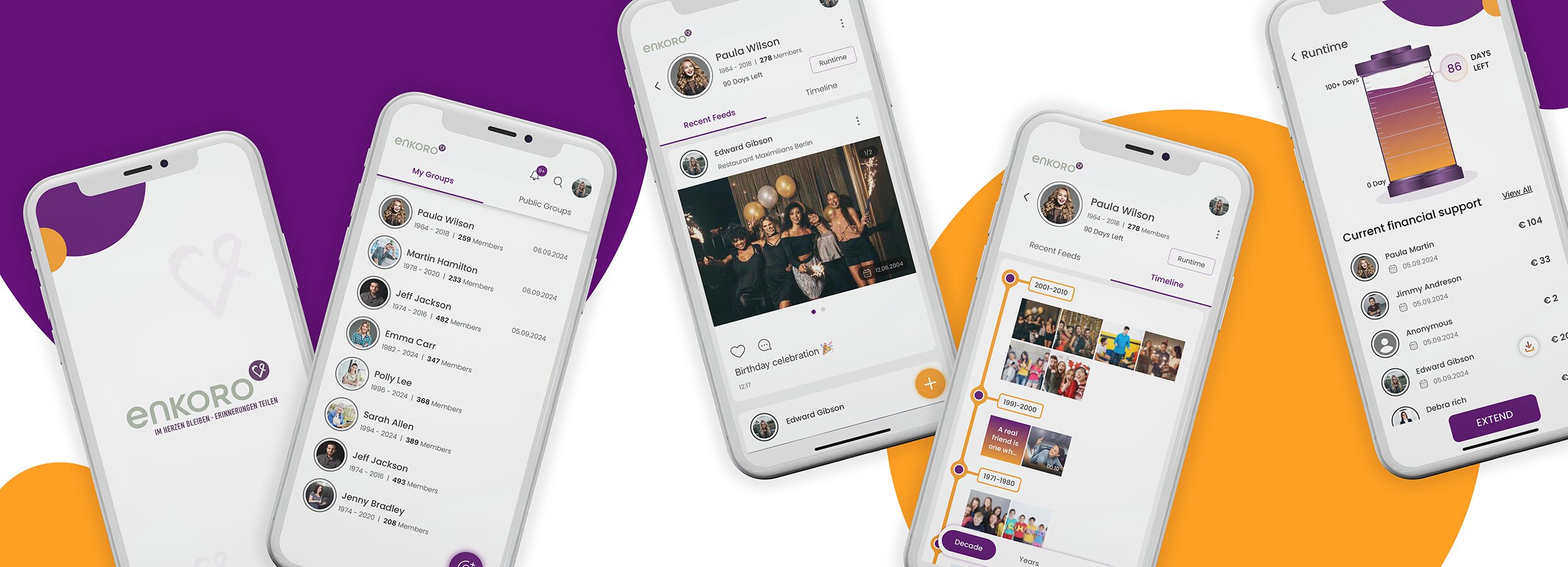Why writing a bereavement card is so difficult
The death of a loved one is a drastic event that not only triggers grief, but also a variety of emotional reactions. During this challenging time, it is important to show compassion and support. A bereavement card can be a valuable expression of this, but many people struggle to find the right words.
The challenge of finding the right expression
Writing a card in times of grief confronts us with the need to give an appropriate form to deeply felt emotions. The fear of causing additional pain through ill-considered words is omnipresent. This uncertainty can be paralyzing, often for fear of striking the wrong note or not adequately acknowledging the emotions of the grieving. When grieving, everyone feels differently, which makes finding the right words difficult.
The power and difficulty of mourning sayings
Especially sayings that express grief and compassion can help to convey the right feeling. They offer the opportunity to send a profound message with just a few words. However, choosing a suitable saying is often not easy. The chosen saying should take into account the relationship with the deceased and the individual feelings of the mourners. Sometimes a short, traditional saying is suitable, while in other cases a longer, personal poem is more appropriate.
The emotional process: understanding the stages of grief
Grief is a process that is characterized by individual stages of grief. These stages – shock, denial, pain, anger, bargaining, depression and acceptance – can vary in intensity and sequence. Understanding these emotional stages can be helpful in finding the right words for a grief card. For example, it is often useful to offer comfort and presence in the initial stages of shock, while words of hope and support may be more appropriate in later stages.
Support through bereavement support and grief counseling
For many people, the support of bereavement support and grief counseling is a valuable resource. These experts can advise on how to express sympathy in writing and provide a deeper understanding of what is important in times of grief. Bereavement counselors can help create the emotional space to convey authentic and compassionate messages that adapt to the individual grieving process of the bereaved.
Remembrance of the deceased and commemoration
When writing a mourning card, it is a good idea to include memories of the deceased. Personal memories can help to fill the face of loss with positive feelings and gratitude for the time spent together. A fond remembrance can provide comfort to loved ones as it emphasizes the continuity of the precious legacy that the deceased person leaves behind. This not only brings back memories, but also acknowledges the impact the deceased had on the lives of others.
Practical tips for writing a bereavement card
- Stay personal: It is particularly valuable to share personal experiences and anecdotes. These create an emotional connection and show how the deceased enriched your own life.
- Formulate sensitively: Make sure you use sensitive and respectful language. Avoid platitudes and concentrate on expressing genuine sympathy.
- Offer support: A concrete offer of help during a difficult time is often more helpful and sincere than just offering general “help”.
- Brevity is often more: a funeral card doesn’t have to be long. Sometimes a short, sincere message is more effective than a long one.
The role of mourning culture in society
Grief culture plays a significant role in the way communities deal with loss and grief. It encompasses the customs, rituals and social norms that shape the grieving process and help people come to terms with the death of a loved one. This culture influences not only individual experiences of grief, but also the collective psychological health of a community.
Importance of rituals and traditions
Rituals surrounding death, such as funerals, mourning ceremonies and memorial services, are firmly anchored in almost every culture. They provide an organizational framework that helps mourners express their feelings and come to terms with their loss. These rituals are often imbued with deep symbolic meanings and may include religious or spiritual elements that reinforce belief in an afterlife or connection to ancestors. In many cultures, mourning rituals are also opportunities for the community to come together to grieve, comfort each other and commemorate together.
Social support and community
The culture of mourning promotes social support, which is important for the healing process. In cultures where the sharing of grief and emotions is seen as central, people are closer together in times of loss. This community building is an essential part of the grieving process; it allows mourners to not feel isolated and to express their emotions in a supportive environment. Communities can include both formal groups, such as bereavement support groups, and informal networks that help the bereaved cope with their feelings.
Influence of religion and spirituality
Religious beliefs play a crucial role in the culture of mourning. They not only offer comfort through the belief in life after death, but also shape the way in which grief is expressed. Many religions have specific rules and rituals that govern how death and grief are dealt with, from mourning attire to specific funeral rites. These religious practices provide the bereaved with a structure and a way to live out their faith in times of grief.
Differences between cultures
The culture of mourning is by no means universal; it varies greatly from one culture to the next. In some cultures, it is common to mourn the death openly and express grief publicly. In other cultures, however, a more reserved approach is preferred and the expression of grief may be limited to close friends and family. These differences reflect the values and beliefs that prevail within a society and shape how people think about life, death and grief.
The influence of modernity
In today’s fast-paced and often individualistic society, the culture of mourning has changed. While traditional rituals still take place in many cultures, there is an increasing tendency to personalize death and grief. Individualized approaches to grieving, such as private memorial services or the use of social media to cope with grief, are gaining in importance. These changes can have both positive and negative effects. On the one hand, they offer mourners more freedom to express their grief; on the other hand, the increasingly individualistic attitude can lead to the communality that has always been important in the grieving process taking a back seat.
Conclusion
The role of mourning culture in society is complex and important for individual and collective well-being. It provides the framework for rituals, social support and expression that are crucial to the healing process after the loss of a loved one. In a time of change, when traditional practices are increasingly being questioned, it remains important to preserve the essence and value of mourning rituals and traditions while creating space for individual expression. Ultimately, the culture of mourning is an essential element of the human experience that connects us, even in times of deepest grief.
Further information at www.enkoro.life




